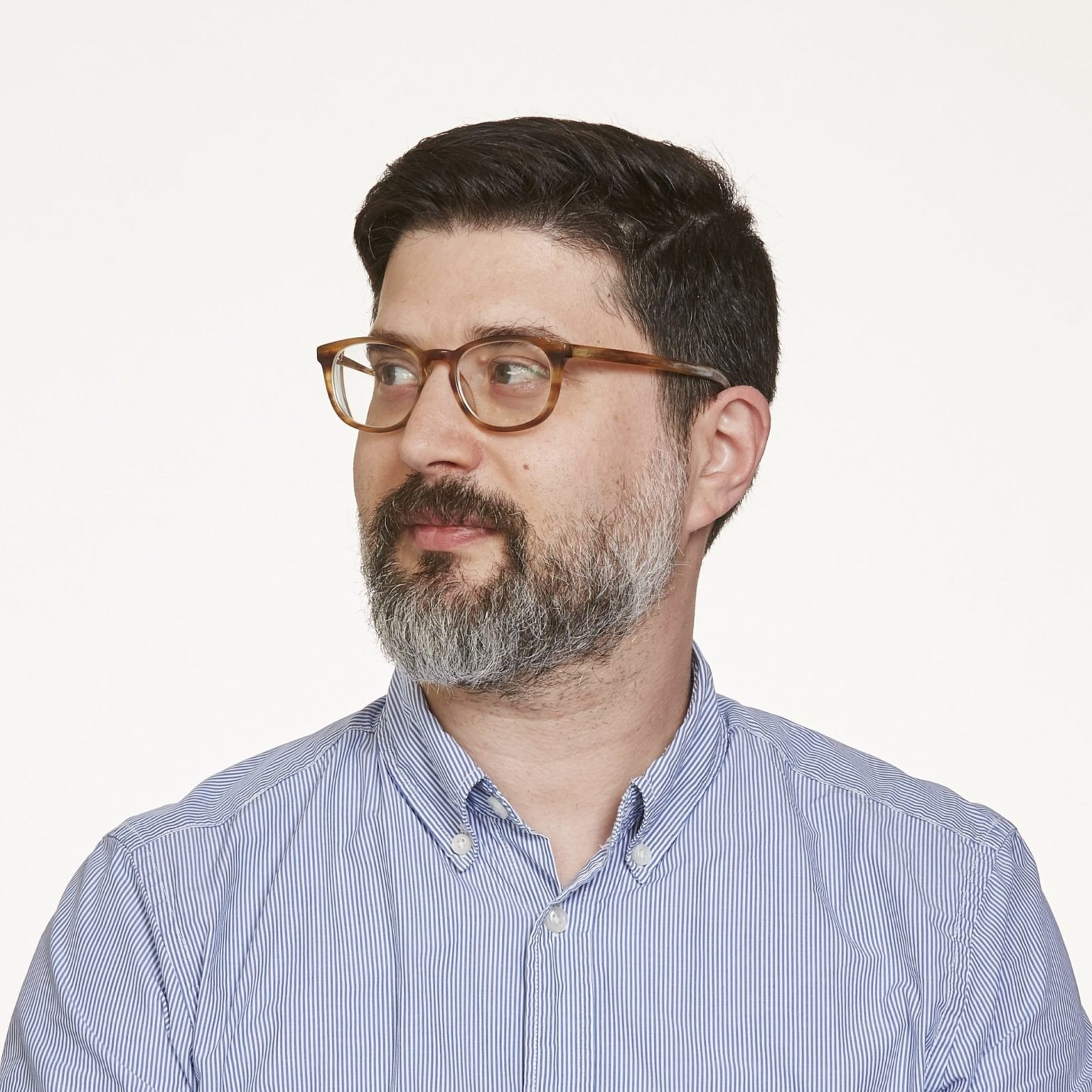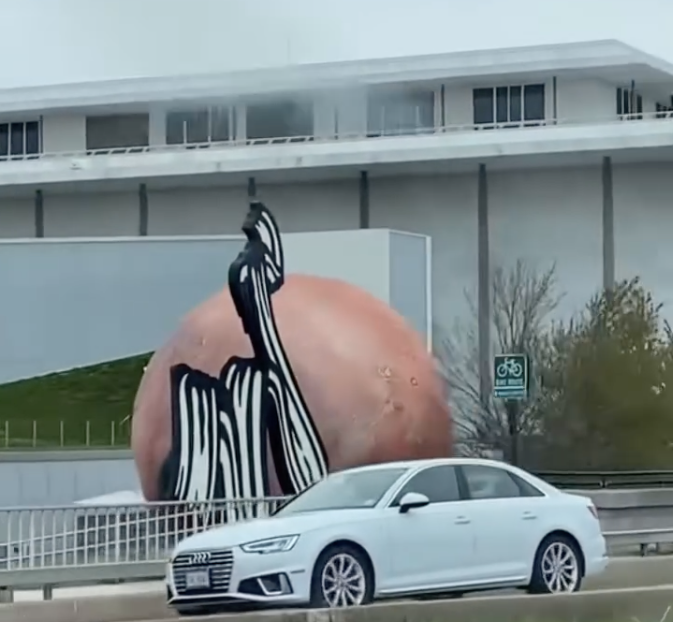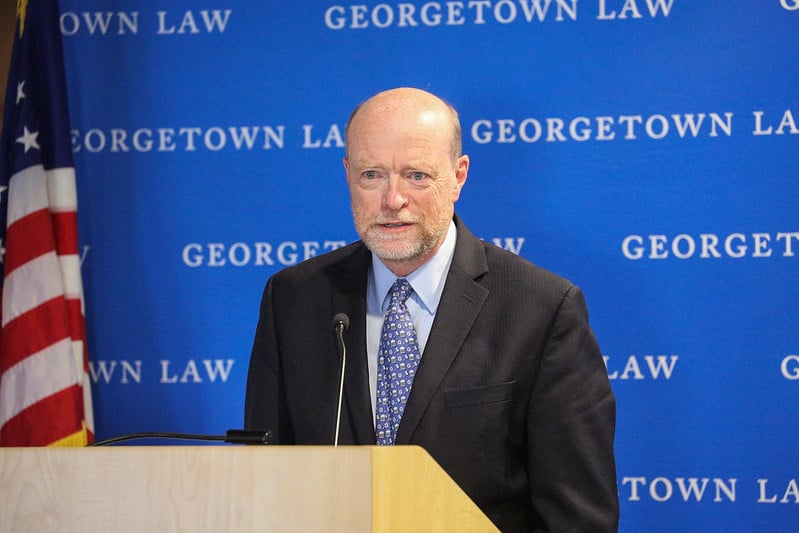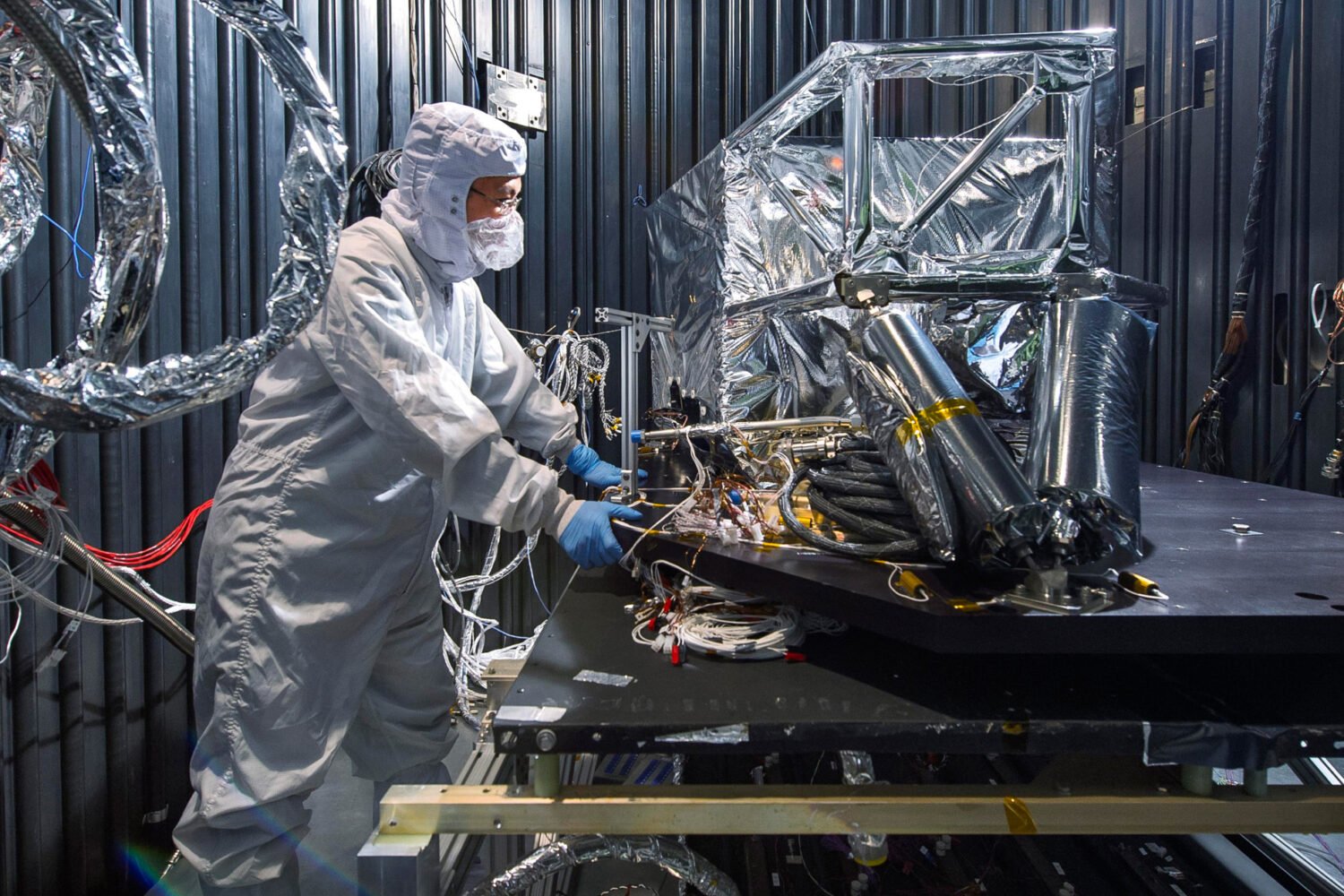Is there life on Mars? For Sarah Stewart Johnson, that question is much more than a great David Bowie tune (although she is a fan). It’s a possibility that has guided her life’s work, leading her to get a PhD in planetary science from MIT and—as head of her own lab at Georgetown University and a visiting scientist at NASA’s Goddard Space Flight Center—to dig into some of the universe’s big mysteries. And you’ll be hearing more about this stuff in the next few years: NASA is planning to land a new rover, Perseverance, on Mars—and hopes to actually send Martian rock samples back to Earth for the first time.
In 2020, Johnson published The Sirens of Mars, an unusual nonfiction book that’s a gripping mix of science, history, memoir, and lightly philosophical space-gazing. “It’s a peculiar band I’ve joined, this pack of Mars scientists, fiercely bound across the generations by the enigma of a neighboring world,” she writes in the prologue. “One might fairly wonder why we have pinned our hopes for finding life to this red planet.” Which seems like a good place to start.
Why are you so interested in looking for life on Mars? What is it about that particular place that, as the title of your book suggests, calls out to you so irresistibly?
When it comes down to it, there’s no other world we’ve discovered that’s so similar to the Earth. Mars was very similar to the Earth around the time life was getting started here billions of years ago. It was warm and wet, had the same sort of conditions. And it just begs the question: Did lightning strike twice? If we’re trying to get an answer to this question of “are we alone in the universe?,” Mars seems like a really fruitful destination to search.
Why is that a question that so fascinates you? You’re looking for microbes, which I’m not sure are the sort of life that would make most people feel less alone.
It’s not intelligent life, I’ll give you that. But these simple microbes do really capture my imagination. Ever since I was a kid, I just was struck by the immensity of the night. This idea of finding some evidence that there was a second genesis of life, it allows us to start answering questions of “why are we here?” and “why is there something and not nothing?” And if we find right in our backyard [on Mars] another genesis of life—in our own solar system, right here—all kinds of possibilities open up. It makes the whole universe seem kind of like a hatchery.
If there’s life that close to us, there almost has to be life elsewhere as well.
I think everywhere. It’s not just some isolated event. We have this kind of ephemeral existence here on this planet; we come and we go. And if there’s other life, that feels like a very special, fundamental thing to know about this universe we’re part of.
The book is full of little asides that I came to think of as “oh, wow” moments, like the fact that they find more meteorites in Antarctica than anywhere else—not because more of them fall there but because it’s so much easier to see them on the ground. Do you just collect that kind of stuff?
Yeah, there’s so many things like that. I guess I do gather them, these little tidbits. There are so many poignant things that will never find expression on the pages of scientific journals. I would go to lectures or conferences and find myself scribbling in the back of the notebook. These things came up that struck me as really beautiful. Maybe that’s part of why I decided to write the book: because I thought Mars deserved a different kind of treatment, something that would capture the mystery and the wonder of the whole quest.
There’s a pivotal moment in the book that you credit with sending you down this career path. You’re on a volcano in Hawaii surrounded by general lifelessness. You kick aside this rock and there’s a single green fern. Tell me why that was so important. Because this book isn’t only about looking for life on Mars. It’s about life in a more general sense.
It’s the nature of life itself. I was up on this completely lifeless summit of a volcano, and then there was this fern that should not have been able to survive in those conditions. But there it was, vibrant and fighting against the void. I just found it magical. There really was something in that moment that made me become a planetary scientist. The idea of looking out into the dark night, trying to find the equivalent [of the fern]: something that was surviving against all odds. That’s what life is, in a lot of ways—this pushing back against the emptiness.
These are not subjects that books about planetary science usually tackle. You’re kind of using the exploration of this far-off place as a way of exploring the closest place—our selves, our inner lives.
I think that’s true. The book is about the search for life on Mars, but it’s not just the science of it. It’s also about our human relationship with the planet and how Mars has this human history, even though no human has ever touched it. I do think that it’s been our mirror. There have been so many things we have imagined to be part of this world, especially when there was no data.
It does seem like over time the expectations of what life on Mars could look like have diminished. Scientists thought there were deliberately constructed canals, signaling intelligent civilization. That wasn’t right, but then there was this idea that Mars might be full of plant life. Well, no, but now maybe there are microbes. What keeps you excited despite that trajectory?
Yeah, I understand what you’re saying. We are certainly no longer looking for an intelligent civilization on the surface of the planet. I think anyone close to the science would not look at the last couple of decades of Mars explorations as diminishing returns. The planet has really burst into Technicolor focus. With the search for life, in many ways it feels like we’re closer than ever to making a discovery. Because we really understand what we’re looking at. Now we understand lots of fundamental things. And some of the new experiments that we’re designing are really powerful.
I happened to read that passage about the fern on the same day that the Pfizer vaccine was approved by the FDA. It’s such a hopeful image, and it felt particularly moving to me at that moment. Has spending all this time contemplating the meaning of life informed the way you think about the state of our world right now?
It makes me think we need science more than ever. It’s science that’s going to get us out of this terrible situation. If anything, it’s redoubled my commitment to understanding biology and all the different forms it takes—even this entity that’s not even truly alive that’s brought us to our knees.
You had a near-death experience in 2019. [Johnson suffered a series of life-threatening complications following surgery.] Has that had an impact on the way you think about life in general?
It’s made me feel like life is tremendously precious and individual lives are just really irreplaceable. It’s made me tremendously grateful that I’m still alive. Because it could have very easily gone a different way. I’ve always had this sense that we’re marching toward our end. We all have these limited lives, and we’ll all die at some point. That seemed tremendously far in the future until recently; now it feels like it could happen any time.
Even the pandemic—all these people are just being struck like lightning in a lot of ways. There is a lot of randomness in the universe when it comes to who lives and who dies. We all have these finite lives and our planet has a finite life, and this idea that there could be something beyond just that, I find very captivating.
I was intrigued by the idea in the book that we’ve always been searching for “life as we know it,” but what if we should actually be looking for “life as we don’t know it”? What if we’ve already found life elsewhere but don’t have the ability to perceive it?
It’s one of the ideas that I’m most excited about right now, actually. We’ve got a big project going that NASA has sponsored that we’re calling the Laboratory for Agnostic Biosignatures. It’s based on this premise that we’ve gotten very good at looking for carbon-based, DNA-based life. But there could be all kinds of different possibilities. How can we look for life if we don’t know exactly what we’re looking for? It’s almost like imagining some color that you’ve never seen before. It’s a formidable challenge, but there are ways that we can go after this question.
You mentioned before how science is going to save us from this pandemic. But at the same time, there’s a big segment of our culture that’s so bizarrely hostile to science. You grew up in Kentucky, which voted twice for Trump. How can we reconcile those vastly different ways of seeing the world?
It’s a really tricky problem. It saddens me to see how politicized science has gotten. A couple decades ago, even things like climate change really didn’t divide along blue and red lines. [Scientists] need to embrace that there are other ways of communicating about things. That’s in part what was driving me to write a book. Scientists don’t always do the best job of communicating their science. I don’t think that’s the entire problem—because even when the data is incredibly clear, people hold onto differing ideas that aren’t backed up by evidence-supported experiments. But that was part of my motivation for trying to share a little bit more about science and the process of science.
Speaking of growing up in Kentucky, in the book you mention that your dad worked for the lab that exhumed Zachary Taylor’s body in 1991 [to determine if he was poisoned—he wasn’t], and you got to hold a vial containing his toenail. I suppose what I would like to know is: What is it like to hold Zachary Taylor’s exhumed toenail?
[Laughs.] It was totally weird! My dad would take me to Take Your Daughter to Work Day. It was a big story back then—they dug up this President. It was this connection with a piece of history, but at the same time, here is this person who was a President and now part of his body is just sitting in a freezer. It was so strange.
The list of people who’ve held a presidential toenail clipping is extremely small.
Probably so.
Tell me about being a White House fellow. You were working in Obama’s Office of Science and Technology Policy. What were you up to?
It was one of the most exciting jobs. Suddenly, there was this huge sense of agency over the day-to-day things I was working on. These huge things would happen: There would be an earthquake in Haiti and we’d all have to mobilize and figure out how to respond. I went from working on these papers about Mars, which a couple dozen people would read, to all of a sudden being on this big global stage working on some really pressing things that had huge impact.
I did find I missed [having more] time. I missed the chance to tinker around with things and just think deeply. In the White House, things are very pressing. Eventually, I decided to return to academia and become a professor. I think it suits me.
Was there a moment while you were there when you realized that you could actually change the world in a way that maybe you can’t as an academic?
Yeah, especially with the power of the purse. I was working on some climate issues at the time. There was something we were working on in the science end of the house, and then all of a sudden we turned it into a presidential budget initiative and all these agencies came together and earmarked money for these experiments we desperately needed. It all just happened. That still kind of blows my mind.
This interview, which has been edited and condensed, appears in the February issue of Washingtonian.



















